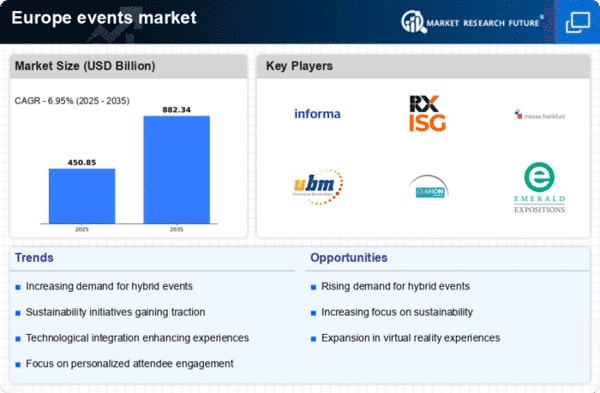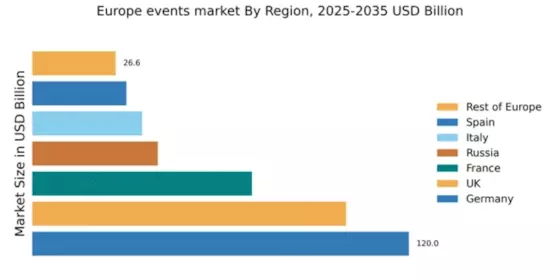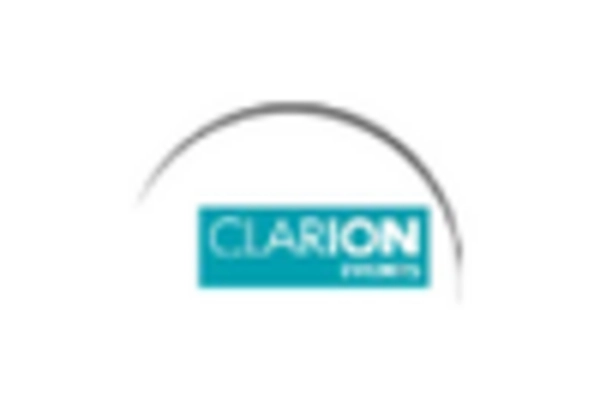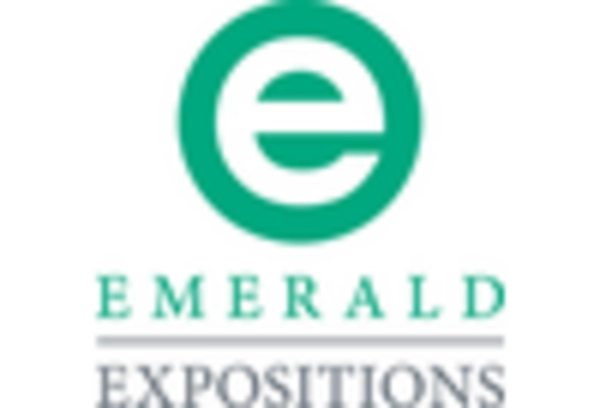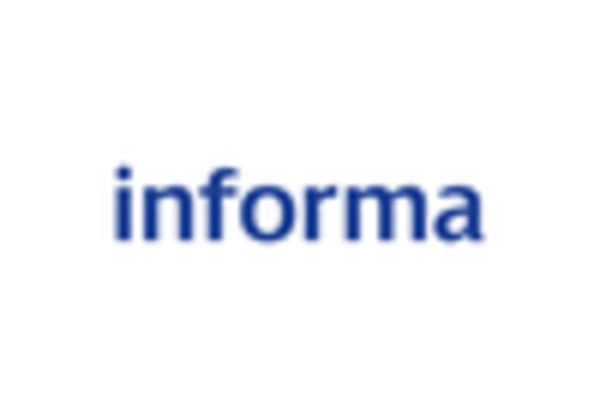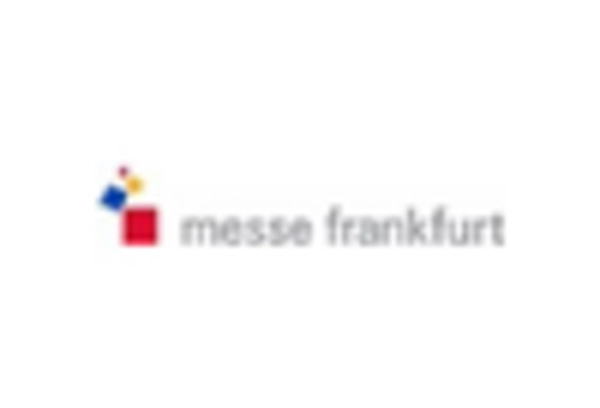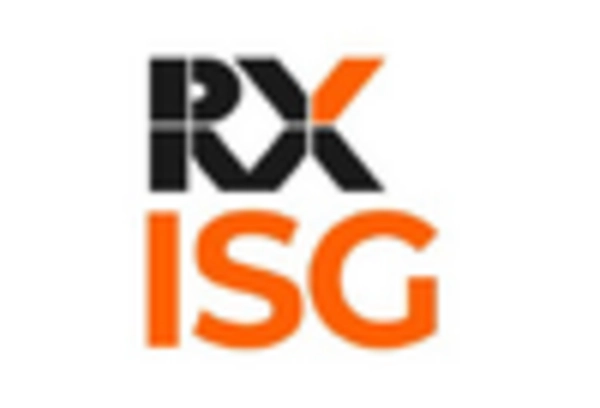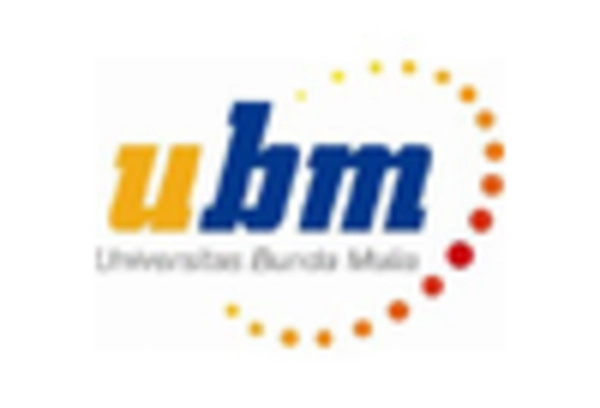Growing Demand for Experiential Marketing
The events industry market in Europe is witnessing a surge in demand for experiential marketing strategies. Brands are increasingly recognizing the value of creating memorable experiences that resonate with consumers on a personal level. This trend is reflected in the rising investment in live events, which are seen as effective platforms for brand engagement. According to recent data, approximately 70% of marketers believe that live events are crucial for achieving their marketing objectives. As a result, the events industry market is likely to evolve, with a greater emphasis on creating unique, immersive experiences that foster emotional connections between brands and their audiences. This shift may lead to innovative event formats and collaborations, ultimately driving growth within the sector.
Expansion of Corporate Events and Conferences
The events industry market in Europe is experiencing a significant expansion in corporate events and conferences. As businesses increasingly recognize the importance of networking and knowledge sharing, the demand for professional gatherings is on the rise. This trend is supported by data indicating that corporate events account for nearly 60% of the total events market in Europe. Companies are investing in high-quality venues and services to enhance the attendee experience, which may lead to increased competition among event organizers. Furthermore, the focus on corporate social responsibility is prompting organizations to seek sustainable event solutions, thereby influencing the types of venues and services utilized. This expansion is likely to drive innovation and diversification within the events industry market, as organizers adapt to meet the evolving needs of corporate clients.
Increased Focus on Health and Safety Standards
In the context of the events industry market in Europe, there is a growing emphasis on health and safety standards. This focus has been catalyzed by heightened awareness of public health issues, leading to the implementation of stricter regulations and protocols. Event organizers are now required to ensure compliance with health guidelines, which may include capacity limits, sanitation measures, and emergency response plans. This shift not only affects the planning and execution of events but also influences attendee confidence and participation rates. As a result, the events industry market in Europe is likely to see a transformation in how events are structured, with an emphasis on creating safe environments that prioritize attendee well-being. This could potentially lead to increased operational costs but may also enhance the overall experience for participants.
Technological Advancements in Event Management
The events industry market in Europe is experiencing a notable transformation due to rapid technological advancements. Innovations such as virtual reality (VR), augmented reality (AR), and artificial intelligence (AI) are reshaping how events are planned and executed. For instance, the integration of AI in event management software enhances attendee engagement and streamlines operations. Furthermore, the European events industry market is projected to grow by approximately 10% annually, driven by these technological innovations. As event organizers increasingly adopt these technologies, they can create immersive experiences that attract larger audiences, thereby boosting revenue potential. This trend indicates a shift towards more interactive and engaging formats, which may redefine traditional event structures and expectations.
Emergence of Niche Events and Targeted Audiences
The events industry market in Europe is increasingly characterized by the emergence of niche events tailored to specific audiences. This trend reflects a growing recognition of the importance of personalization in event planning. Organizers are now focusing on creating specialized events that cater to particular interests, industries, or demographics. For instance, niche events such as tech expos, wellness retreats, and cultural festivals are gaining traction, attracting dedicated audiences. This shift may lead to a more segmented market, where event organizers must develop targeted marketing strategies to reach their desired attendees effectively. As a result, the events industry market in Europe is likely to see a diversification of event offerings, which could enhance overall engagement and satisfaction among participants.


